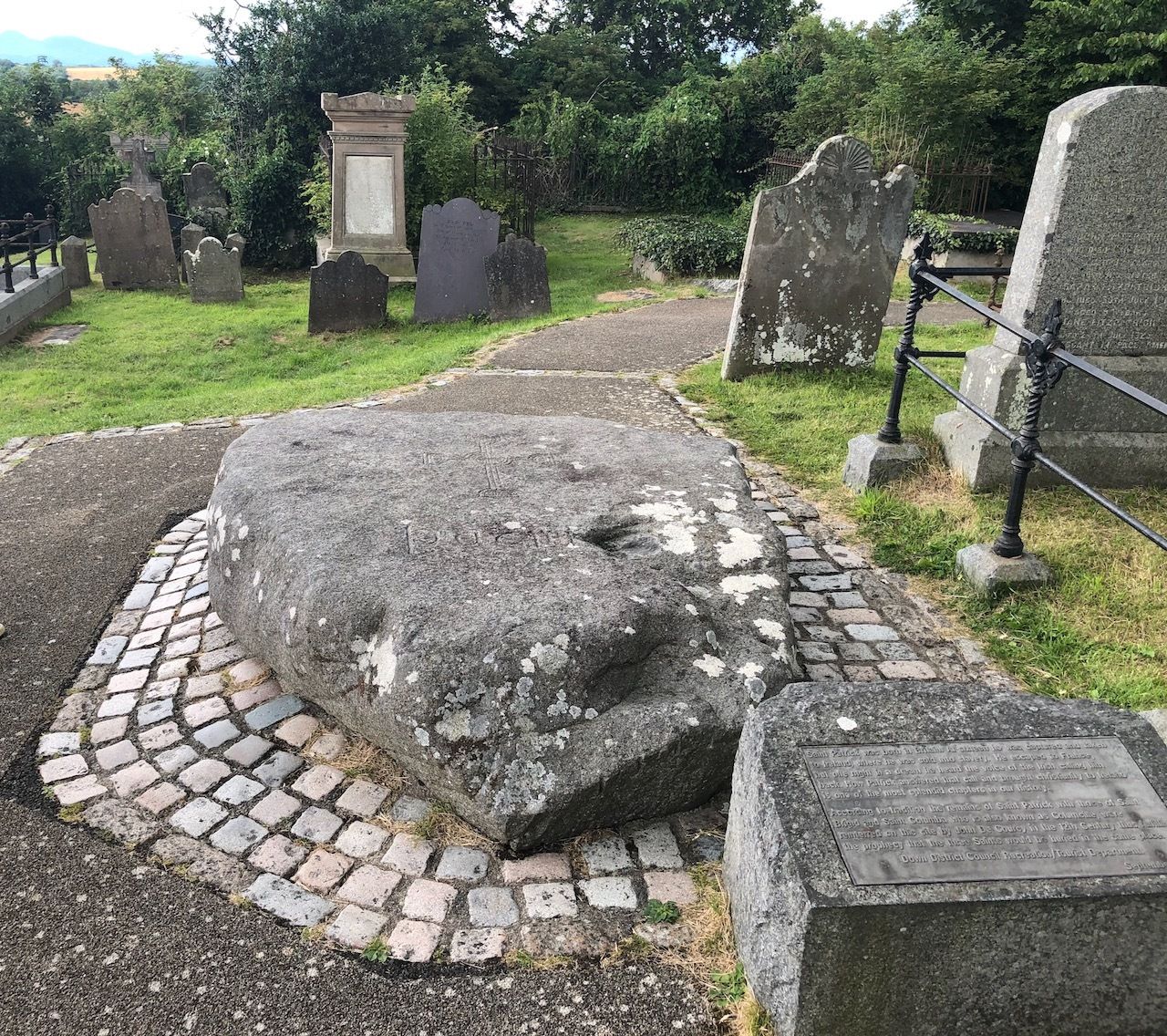- This is the Day
- Posts
- March 17
March 17
Saint Patrick, Bayard Rustin, and Ann Weems

Grave of Saint Patrick, Down Cathedral. 2024. Own photo.
March 17 marks Saint Patrick’s Feast Day. Not only did Saint Patrick establish a far-reaching Christian ministry in Ireland in the fifth century, he synthesized Celtic reverence for nature with Christian theology. During the so-called European “Dark Ages,” many works of philosophy and literature from the first centuries would have been lost if not for the monasteries in Ireland and their librarians and scribes.
Today is also the birthday of Bayard Rustin, in 1912. He was a Quaker who fought for labor, Black, and gay rights, a public intellectual and an organizer. He was the principle organizer for the March on Washington in 1963. He was marginalized during the Civil Rights movement for being gay, but did not compromise his witness.
Today also marks the death, in 2016, of Ann Weems, Presbyterian poet. Her words have fueled many contemporary progressive Christians.
Reflection:
From Saint Patrick’s Confession:
I am, then, first of all, countryfied, an exile, evidently unlearned, one who is not able to see into the future, but I know for certain, that before I was humbled I was like a stone lying in deep mire, and he that is mighty came and in his mercy raised me up and, indeed, lifted me high up and placed me on top of the wall. And from there I ought to shout out in gratitude to the Lord for his great favors in this world and forever, that the mind of man cannot measure.
(The last few years has seen a lot of viral psuedohistory on Patrick, and you will likely see some today. Not only has it been thoroughly debunked, but such pseudohistory is a distraction from the real colonization and suffering inflicted by the church.)
Bayard Rustin wrote about a moment, just before he was arrested for sitting in the front of a bus, that clarified his intersectional work for justice:
As I was going by the second seat to go to the rear, a white child reached out for the ring necktie I was wearing and pulled it, whereupon its mother said, "Don't touch a n_____."
If I go and sit quietly at the back of that bus now, that child, who was so innocent of race relations that it was going to play with me, will have seen so many blacks go in the back and sit down quietly that it's going to end up saying, "They like it back there, I've never seen anybody protest against it." I owe it to that child, not only to my own dignity, I owe it to that child, that it should be educated to know that blacks do not want to sit in the back, and therefore I should get arrested, letting all these white people in the bus know that I do not accept that.
It occurred to me shortly after that that it was an absolute necessity for me to declare homosexuality because if I didn't I was a part of the prejudice. I was aiding and abetting the prejudice that was a part of the effort to destroy me.
Rustin clearly articulates here both a Quaker and Buddhist approach to justice work: that liberation is, in part, about setting the oppressor free, too. What we want for ourselves, we want for the sake of others, as well.
Here is Ann Weems’ poem I No Longer Pray for Peace.
On the edge of war, one foot already in,
I no longer pray for peace:
I pray for miracles.
I pray that stone hearts will turn
to tenderheartedness,
and evil intentions will turn
to mercifulness,
and all the soldiers already deployed
will be snatched out of harm’s way,
and the whole world will be
astounded onto its knees.
I pray that all the “God talk”
will take bones,
and stand up and shed
its cloak of faithlessness,
and walk again in its powerful truth.
I pray that the whole world might
sit down together and share
its bread and its wine.
Some say there is no hope,
but then I’ve always applauded the holy fools
who never seem to give up on
the scandalousness of our faith:
that we are loved by God...
that we can truly love one another.
I no longer pray for peace:
I pray for miracles.
Prayer: Oh God, we pray for miracles. Amen.